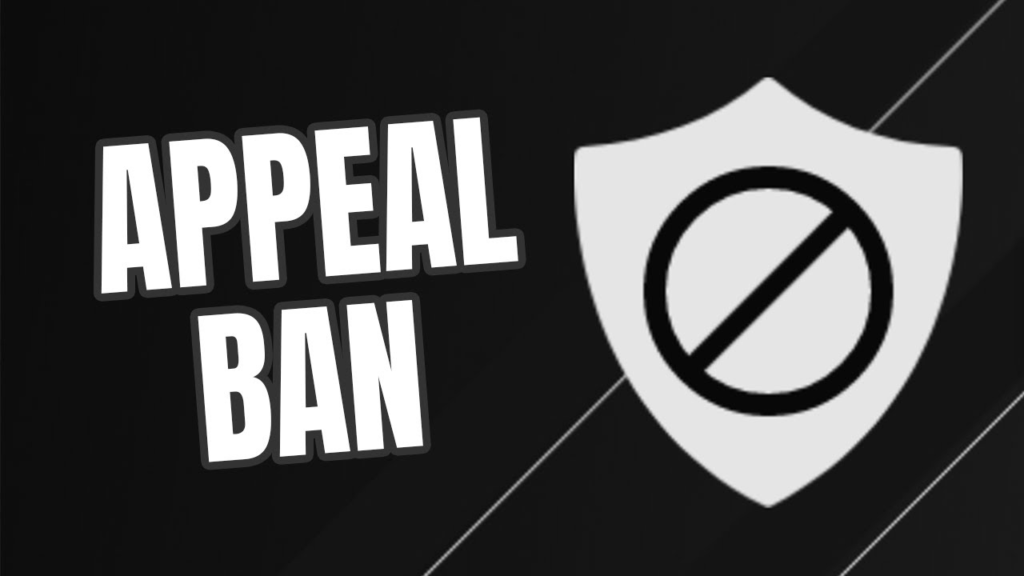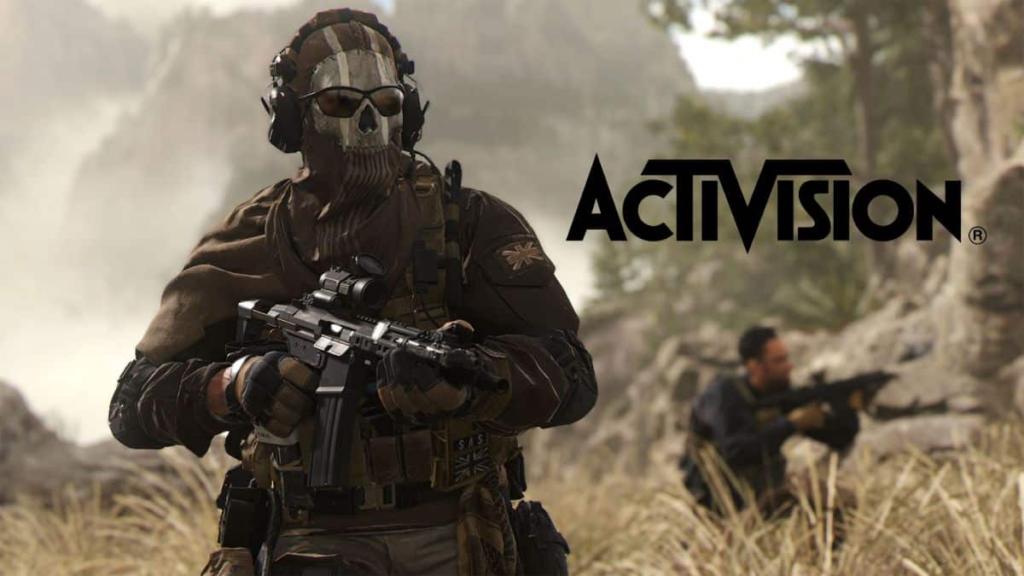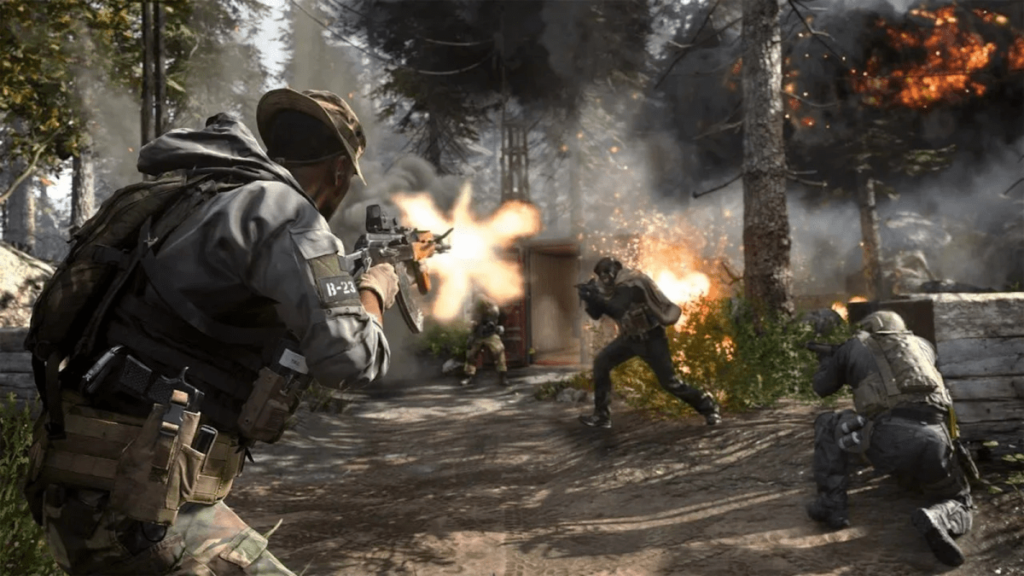Online gaming is a thrilling adventure, but it comes with its fair share of challenges. One such challenge is dealing with bans. If you’ve found yourself banned by Activision, don’t worry—this guide will walk you through everything you need to know about appealing a ban and getting back into the game.
Understanding Activision Ban Appeal

Types of Bans Imposed by Activision
Activision, the company behind popular games like Call of Duty and World of Warcraft, enforces several types of bans to maintain a fair gaming environment. These include temporary bans, permanent bans, and console bans. A temporary ban restricts access to the game for a specific period, usually for minor infractions. Permanent bans, on the other hand, are indefinite and are typically reserved for severe violations. Console bans prevent a specific gaming console from accessing Activision’s servers, which can impact all accounts using that console.
Table of Contents
Reasons for Receiving a Ban
There are multiple reasons why a player might get banned by Activision. These reasons typically revolve around actions that violate the game’s terms of service. Understanding why bans occur is the first step toward avoiding them. Activision aims to ensure a fair and enjoyable experience for all players, and their ban policies reflect this commitment.
Common Reasons for Activision Ban Appeal

Cheating and Hacking
Using unauthorized software, hacks, or cheats to gain an unfair advantage is a surefire way to get banned. Activision has robust systems in place to detect and penalize such behavior. These systems can detect modifications to the game files or the use of third-party programs designed to give players an edge over others. Cheating undermines the integrity of the game and can ruin the experience for other players, which is why it’s taken so seriously.
Toxic Behavior
Engaging in toxic behavior, such as harassment, bullying, or using offensive language, can also lead to a ban. Activision aims to foster a positive gaming community and takes reports of such behavior seriously. This includes verbal abuse, discriminatory language, and any form of behavior that can create a hostile environment for other players.
Exploiting Glitches
Exploiting in-game glitches or bugs to gain an advantage can result in a ban. This includes using known exploits to bypass game mechanics in unintended ways. For example, if a player discovers a glitch that allows them to bypass certain game features or earn rewards unfairly and exploits it, they risk being banned. Glitches can disrupt the game balance and give certain players unfair advantages.
Account Sharing and Selling
Sharing your account with others or attempting to sell your account is against Activision’s policies. This practice can lead to permanent bans as it undermines the integrity of the game’s community. Account sharing can lead to security issues and is often associated with boosting services where players pay others to increase their rankings. Selling accounts can also involve fraudulent activities.
Immediate Steps After Getting Banned

Stay Calm and Assess the Situation
Receiving a ban can be frustrating, but it’s important to stay calm. Take a moment to understand the reason for your ban by reviewing any communications from Activision. Panicking or acting impulsively can lead to mistakes that could harm your appeal process.
Check Official Communication from Activision
Activision typically sends an email detailing the reason for the ban. Check your email and any messages within the game for information on why you were banned and what type of ban you received. This communication will often include details about the infraction and any steps you can take to appeal the decision.
Activision Ban Appeal Process
Overview of the Appeal Process
If you believe your ban was unjustified, Activision provides a process to appeal the decision. The appeal process involves submitting a detailed request for review. It’s a formal way to request Activision to reconsider their decision based on the evidence and explanation you provide.
Steps to Initiate an Appeal
- Visit the Support Page: Go to Activision’s official support page.
- Log In: Use your game account credentials to log in.
- Submit a Request: Find the option to submit a ban appeal request and follow the instructions.
Required Information for an Appeal
When submitting your appeal, provide the following:
- Your account details: Include your username, email address, and any other identifying information.
- A clear explanation of why you believe the ban is unjustified: Be concise but thorough.
- Any relevant evidence or context that supports your case: This could include screenshots, video recordings, or any other documentation that supports your claim.
Writing an Effective Ban Appeal
Be Honest and Clear
Honesty is crucial when writing your appeal. Clearly state the facts and avoid embellishments or excuses. Activision values transparency and any attempt to deceive them could lead to further penalties.
Explain the Situation
Provide a detailed explanation of the events leading up to the ban. If there were misunderstandings or accidental actions, describe them accurately. For example, if you were mistakenly flagged for cheating due to unusual behavior in the game that was not intended to cheat, explain this clearly.
Provide Evidence and Context
If you have any evidence that supports your claim, such as screenshots or video recordings, include them in your appeal. This can strengthen your case. Contextual evidence can show that your actions were misunderstood or misinterpreted.
What to Avoid in a Activision Ban Appeal
Avoiding Blame and Aggression
Blaming Activision or using aggressive language will not help your case. Keep your tone respectful and constructive. Remember that the person reviewing your appeal is there to help, and being hostile can hurt your chances of a successful appeal.
Refraining from Providing False Information
Providing false information can lead to a permanent ban and damage your credibility. Stick to the facts and be truthful in your appeal. Any discrepancies found in your account can lead to a harsher penalty.
Timeline and Response
How Long Does the Appeal Process Take?
The appeal process can take several days to a few weeks. Patience is key during this period. Activision will review your appeal thoroughly before making a decision. The exact time frame can vary depending on the volume of appeals they are handling.
Understanding Activision’s Response
Once Activision reviews your appeal, they will respond with their decision. This response will be sent via email, so keep an eye on your inbox. The response will detail whether the ban is lifted, upheld, or if additional information is needed.
Success Stories and Case Studies
Real-life Examples of Successful Appeals
There have been numerous cases where players successfully appealed their bans. For example, a player wrongfully banned for alleged cheating provided evidence of a clean gaming history and a detailed explanation, leading to the ban being lifted. Such stories highlight the importance of providing clear and honest information.
Lessons Learned from Past Appeals
Successful appeals often include a respectful tone, clear explanations, and supporting evidence. Learn from these examples to improve your own appeal. Consistency in your story and supporting evidence can greatly increase your chances of success.
Dealing with a Rejected Activision Ban Appeal
Next Steps if Your Appeal is Denied
If your appeal is denied, you may need to accept the decision. However, you can request further clarification or consider contacting Activision support for more information. Sometimes, understanding the exact reason for the denial can help you avoid similar issues in the future.
Exploring Other Avenues
In some cases, seeking advice from online gaming communities or legal experts might provide additional insights or potential next steps. Communities often have experienced players who can offer advice based on their own experiences.
Preventing Future Bans
Best Practices for Avoiding Bans
Follow the game’s terms of service, avoid using cheats, and maintain respectful interactions with other players to prevent future bans. Regularly update your knowledge about the game’s rules and community guidelines.
Staying Informed About Activision’s Policies
Regularly review Activision’s policies and updates to stay informed about acceptable behavior and potential changes in their rules. This can help you adapt to new regulations and avoid unintentional violations.
Community Support and Resources: (Activision Ban Appeal)
Online Forums and Communities
Join forums and communities dedicated to Activision games. These platforms can offer support, advice, and updates on game policies. Being part of a community can also provide a sense of belonging and shared experiences.
Helpful Resources and Tools
Utilize resources like official game guides, tutorials, and community tools to enhance your gaming experience and stay compliant with rules. These resources can help you understand the game better and avoid actions that could lead to bans.
Activision’s Role in Fair Play: (Activision Ban Appeal)
Importance of Maintaining a Fair Gaming Environment
Activision’s strict enforcement of rules ensures a fair and enjoyable experience for all players. Their ban system is part of this effort. Fair play is essential for a positive gaming environment where all players can compete on an equal footing.
How Activision Enforces Its Rules
Through advanced detection systems and player reports, Activision actively monitors and enforces its rules to maintain integrity in its games. They use a combination of automated systems and human review to detect and address violations.
Legal Considerations: (Activision Ban Appeal)
Understanding Your Rights as a Player
As a player, you have rights and responsibilities. Familiarize yourself with the terms of service and your rights within the game. Knowing your rights can help you understand what actions you can take if you feel they have been violated.
When to Seek Legal Advice
In extreme cases where you believe your rights have been violated, seeking legal advice might be necessary. Consult with a legal expert to explore your options. Legal advice can help you navigate complex situations where standard appeal processes have failed.
Conclusion: Activision Ban Appeal
Navigating an Activision ban can be challenging, but understanding the reasons behind bans, the appeal process, and how to avoid future issues can help you get back to enjoying your favorite games. Stay informed, play fair, and use the resources available to you to ensure a positive gaming experience. By following best practices and staying engaged with the community, you can minimize the risk of future bans and continue to enjoy the vibrant world of online gaming.
FAQs: Activision Ban Appeal
How often can you appeal an Activision ban? (Activision Ban Appeal)
You can typically appeal an Activision ban once. If your initial appeal is denied, submitting multiple appeals without new evidence is unlikely to be successful. It’s important to make your first appeal as strong as possible.
Can temporary bans be appealed?
Yes, temporary bans can be appealed, but it’s important to consider the duration of the ban. Sometimes, by the time the appeal is processed, the ban might already be lifted. However, if you feel the ban was unjust, it’s still worth submitting an appeal to clear your record.
What should I do if I don’t receive a response to my appeal?
If you don’t receive a response, check your email’s spam folder. You can also follow up with Activision support after a reasonable period. Persistence can sometimes be necessary to get a resolution.
Is it possible to get banned for false accusations?
While it’s rare, false accusations can happen. If you believe you’ve been wrongfully banned, provide as much evidence as possible in your appeal to clarify the situation. Activision does review appeals thoroughly and can correct mistakes.
How can I contact Activision support directly?
You can contact Activision support through their official website, using the support section to submit queries or requests for assistance. They also provide resources and FAQs that can help you navigate common issues.


